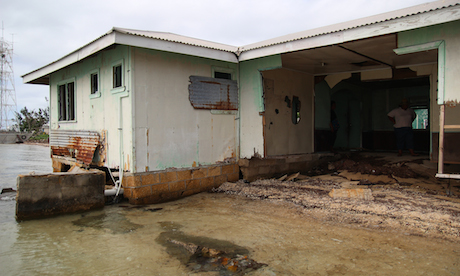The United Nations Climate Change Summit began on Monday in New York.
The Climate Change Summit is trying to find agreement on ways to limit further environmental damage.
“The people most affected – at grass roots level and on the coastal edge – must be part of those discussions,” says Caritas Aotearoa New Zealand director Julianne Hickey.
Caritas Aotearoa New Zealand has produced a report based on interviews of people across Oceania at grass roots and coastal edge level on the environmental challenges they face as a result of climate change.
“Vulnerable people throughout Oceania are living every day with and adapting to environmental changes and challenges. They are actively striving to overcome environmental problems not of their making and beyond their control,” says Hickey.
She says Pasifika people think the money going to high level negotiations about climate change could be better spent.
“They’re tired of people coming and doing research and doing big scientific studies. They actually want to see action now.”
“They are scrambling to build sea walls out of sticks, stones, shells and coral, to protect their lands and homes from erosion and rising sea levels”.
The report, Small yet strong: Voices from Oceania on the environment, is to be launched at St Peter Chanel Catholic Church, Clover Park, Auckland on October 4 (St Francis Day).
Source
Additional reading- Australians rally for climate change outside G20 talks
- Thousands expected in NYC for largest climate-change march in history
- About 300 protesters have marched up Auckland's Queen Street as part of a global protest urging more action on climate change.
- Marshall Island poet in the spotlight at Climate Change Summit
- Climate protests across the Pacific target UN Climate Summit
- Pacific in spotlight as thousands gather for climate action
- Thousand protest climate change in New York
News category: New Zealand, Top Story.




